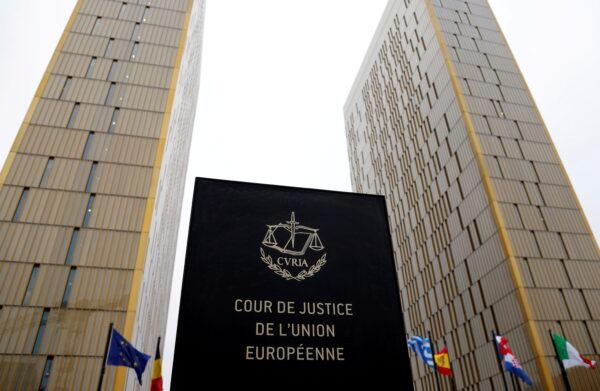The European Commission is suing the UK for alleged violations of the terms of a post-Brexit deal on the free movement of people.
The commission said in a statement on Monday that it had decided to refer the UK to the Court of Justice of the European Union (CJEU) “for failure to comply with EU law on free movement of EU citizens and their family members at the end of 2020.”
Brussels diplomats said there were “severe shortcomings” in the UK’s implementation of an EU treaty, “which continue to affect EU citizens.”
Free Movement and ECJ
Brexit saw the end of the free movement of people when the UK officially left the bloc on Jan. 31, 2020. However, under the Withdrawal Agreement, EU citizens and their families who lived in or moved to the UK before that date are allowed to stay and work, granting them largely the same rights they had when the UK was still part of the EU. Reciprocal arrangements exist for UK citizens in the EU.And although the UK is no longer bound by EU laws, infringements of certain parts in the Withdrawal Agreement can be pursued by the European Court of Justice (ECJ), one of the two CJEU courts.
Prime Minister Sir Keir Starmer’s spokesperson would not give an official government response to the court referral, saying, “I can’t comment on legal proceedings, which also relate to issues from when the UK was an EU member state and during the transition period under the previous government.”
‘Labour Will Surrender’
Shadow foreign secretary Dame Priti Patel warned the Labour government about the bloc’s legal actions, advising they “strongly” defend themselves against the claim.Patel said the bloc’s “enthusiasm to continue to take proceedings against us in the ECJ should be a warning to Keir Starmer as he tries to edge us back under its jurisdiction in more areas and extend mobility rights for EU citizens.”
The shadow foreign secretary continued, “Labour will surrender our sovereignty and instead of focusing on securing growth through a competitive domestic economy and global trade, they want to tie our hands up in the EU.”
No Return to EU Institutions
Patel’s comments were in reference to a team formed to deal with UK–EU relations.Downing Street acknowledged that the group existed and that they were moved from the Foreign Office to the Cabinet Office “to secure the best possible deal for the UK in relation to the EU.”
“Since coming into government, we’ve been focused on resetting our relationship with the EU to make Brexit work for the British people,” the spokesperson said.
Number 10 added that the government was committed to not rejoining the EU’s institutions.

Despite the Labour Party being largely staunchly pro-EU and backing Remain in the 2016 referendum, the party pledged in its 2024 manifesto that a Starmer administration would “stay outside of the EU” and there would be “no return to the single market, the customs union, or freedom of movement.”
The party instead would set out to improve the UK’s trade and investment relationship with the EU, “by tearing down unnecessary barriers to trade.”
Reeves said conversations about deepening trade arrangements amid a wider reset with the bloc would come in the New Year.







